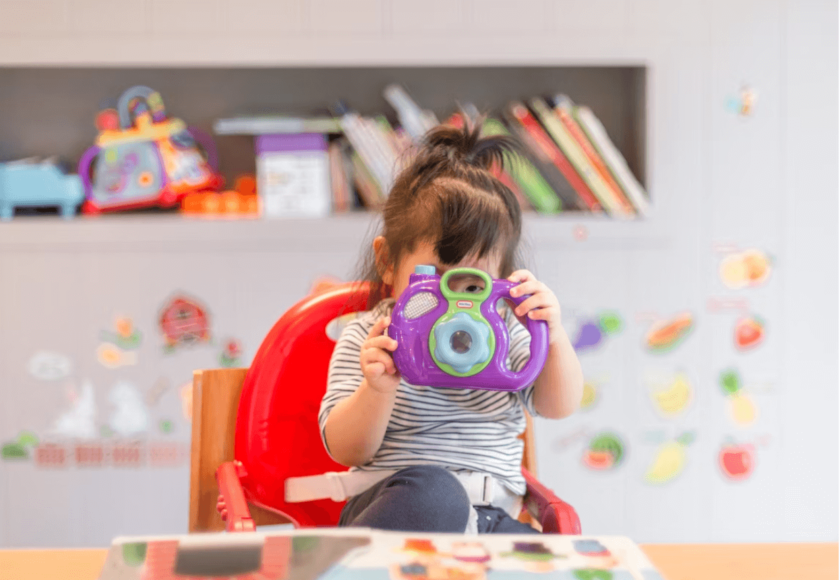One of the most common challenges that parents of autistic children face is helping their kids overcome social anxiety. This can be a difficult task, as autistic children often find it hard to understand and express their emotions. In this blog post, we will discuss some ways that you can help your child deal with social anxiety. We will also provide a few tips for how to make social interactions easier for them. Thanks for reading!

1. Understand the signs of social anxiety in kids with autism
To start off, it’s important to be able to identify when your child may be experiencing social anxiety. Look out for the following signs:
- Withdrawing from situations or activities they once enjoyed
- Refusal to go to school or participate in class
- Difficulty making and maintaining eye contact
- Problems sleeping or eating due to anxiety
- Frequent tantrums or meltdowns
- Complaining of stomachaches or headaches with no medical cause
If you notice any of these signs, it’s important to talk to your child’s doctor or therapist. They can help you figure out if social anxiety is the root cause and develop a treatment plan.
2. Help them to understand their feelings and emotions
When an autistic child is feeling anxious, they may not be able to understand or express what they are feeling. It’s important to help them to understand their emotions and how to cope with them.
One way you can do this is by using a feelings chart. You can find these online or make your own. A feelings chart will help your child to identify and understand their emotions.
It’s also important to talk to your child about their anxiety. Help them to understand what it is and how it feels. This will help them to feel more in control of their anxiety and less scared of it.
You can also teach your child some relaxation techniques that can help to reduce their anxiety. Breathing exercises and muscle relaxation techniques are two examples.
3. Teach them coping mechanisms and relaxation techniques
If your child is struggling with social anxiety, one of the best things you can do is to teach them coping mechanisms and relaxation techniques. This will help them to cope with the anxiety in a more constructive way.
There are many different ways to do this, but some simple exercises include deep breathing, progressive muscle relaxation, and visualization. You can also read up on ABA therapy for autism, as this can be a very effective treatment for social anxiety. And, of course, always make sure to be there for your child when they need you – provide support and understanding, and let them know that you love them no matter what.
4. Encourage positive self-talk
In order to help your child cope with social anxiety, encourage them to use positive self-talk. This means teaching them to talk kindly to themselves in their head whenever they start feeling anxious. For example, they can say things like “I can do this” or “I am a good person.” This will help boost their confidence and make them feel more capable of dealing with social situations.
Another helpful tip is to have them come up with a “safe word” that they can use when they start feeling overwhelmed in a social situation. This can be a word or phrase that they can say to themselves in their head as a reminder that they are safe and that they can get through the situation.
If you notice that your child is struggling with social anxiety, don’t hesitate to reach out to a mental health professional for help. They can provide your child with the tools they need to cope with their anxiety and make progress in their social skills. With the right support, your child can learn to manage their social anxiety and lead a happy and fulfilling life.
5. Model appropriate social behavior yourself
Since parents are typically a child’s first and most influential social coach, it’s important that you model the types of social interactions and behaviors you want your child to learn. If you avoid eye contact, never talk to strangers, or always eat lunch by yourself, your child is likely to adopt these same behaviors.
On the other hand, if you make an effort to be social, strike up conversations with people you don’t know, and invite friends over to your house often, your child is more likely to develop those same habits.
Also, keep in mind that it’s never too late to start modeling appropriate social behavior. So, even if you realize that you’ve been modeling shy or anxious behavior up until this point, know that you can change your ways and help your child do the same.
This is a great way to get started on changing things for the better. Not only will your child feel more comfortable socializing if they see you doing it, but they’ll also have a role model to look up to when it comes to interacting with others. Just be sure that you’re genuine in your attempts to be social so that your child doesn’t feel like you’re putting on a show.
6. Reward positive progress
Once your child starts making some progress with their social anxiety, it’s important to reward them for their efforts. This could be something as simple as verbal praise or a special treat. Whatever you choose, make sure that your child knows that you are proud of their progress.
Rewarding your child for their progress is a great way to encourage them to continue working on their social anxiety. It will also help them to feel good about themselves, which is an important part of managing any type of anxiety.
If you’re not sure how to reward your child, here are some ideas:
– Give them a big hug and tell them how proud you are of their progress
– Take them out for their favorite ice cream
– Buy them a small toy or book that they have been wanting
– Give them extra screen time for one day
Whatever you do, make sure that your child knows that you are proud of their progress and that you appreciate their efforts.

Lastly, different types of therapies can be useful in treating social anxiety in autistic children. A therapist can help your child learn how to cope with social situations and interact with others. There are also many support groups available that can provide guidance and advice. With the right treatment, your child will be able to lead a happy and fulfilling life.

